Your cart is currently empty!
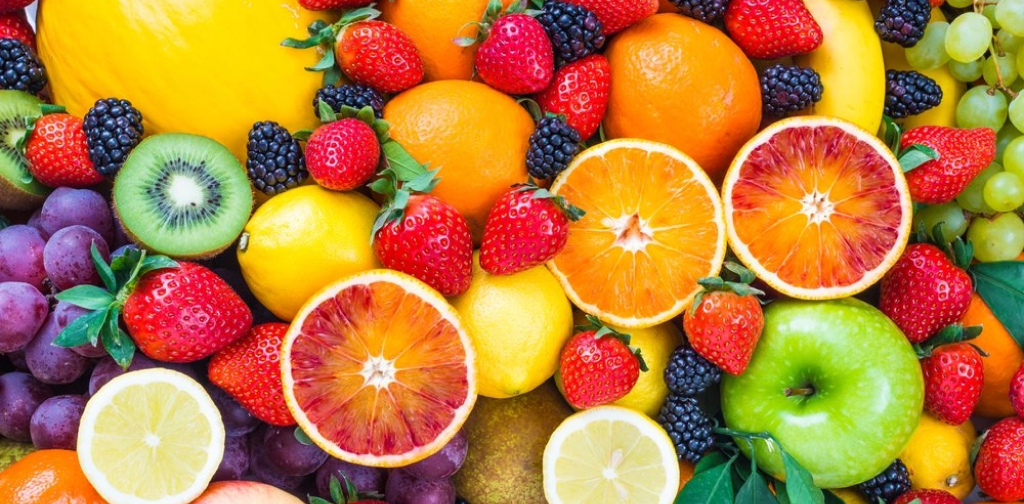
A healthy diet is not about eating less food but adding a balanced quantity of vitamins, minerals, proteins, carbohydrates, and fibre to your daily diet. When it comes to a balanced diet, vitamin D is considered the most crucial nutrient for the human body, promoting overall wellness. The importance of vitamin D fruits and vegetables can’t be overstated as they are necessary for bone health and immunity against illness. So, to prevent a vitamin D deficiency, consuming fruits rich in Vitamin D is always advisable.
Vitamin D’s main functions are to promote bone health, reduce inflammation, restore the immune system, and help absorb calcium. Although there is no better way to consume Vitamin D than sitting in sunlight, it’s not always possible to get enough from the sun alone. However, fruits can complete your required daily dose of Vitamin D.
So, if you’re looking for a Vitamin D fruit and vegetable list, this blog will help you a lot. We have curated a list of Vitamin D-rich fruits that would help you prevent your nutrient deficiency.
Benefits of Consuming Vitamin D Fruits
Here are some of the scientifically-backed benefits of vitamin D in the human body:
Fosters Robust Bones and Teeth
Vitamin D facilitates the absorption of calcium and phosphate in the intestines, leading to strong bones and teeth. A vitamin D deficiency hinders the body’s ability to absorb these essential minerals, resulting in weakened bones and an increased risk of conditions like osteoporosis.
Enhances Bone Health
Vitamin D works in tandem with calcium to support bone growth and remodeling processes. It regulates bone mineralization, ensuring that bones remain healthy and strong throughout our lives.
Supports Immune Function
Recent research suggests that vitamin D is crucial in supporting the immune system. By modulating the immune response, it may help reduce the risk of diseases such as respiratory infections, autoimmune disorders, and certain cancers.
Optimal Muscle Performance
Adequate vitamin D levels are crucial for robust muscle strength, growth, and coordination. They also enhance overall mobility and reduce the risk of falls and fractures, particularly in older adults.
Blood Pressure Regulation
Sufficient vitamin D levels have been linked to a lower risk of hypertension. It helps regulate the body’s blood pressure balance by modulating the renin-angiotensin-aldosterone system.
Cholesterol Management
Vitamin D helps in controlling cholesterol levels. Research suggests that optimal vitamin D levels are associated with lower “bad” cholesterol (LDL) and higher “good” cholesterol (HDL), reducing the risk of heart disease.
Cardiovascular Health
Vitamin D receptors are present in cardiac muscle cells, directly impacting heart health. It may help regulate heart rhythm and overall cardiac function.
Asthma Management
Some studies suggest that vitamin D deficiency is common among asthmatics. Maintaining optimal vitamin D levels may help regulate asthma symptoms, although more research is needed to understand the connection fully.
Reduced Risk of Chronic Diseases
Adequate vitamin D levels have been linked to a lower risk of various chronic diseases, including type 2 diabetes, heart disease, certain types of cancer (such as colon, breast, and prostate cancer), and immune-system disorders like rheumatoid arthritis.
Mood Boost
Research has established a strong link between vitamin D and improved mood regulation. Low levels of vitamin D have been associated with a higher risk of depression. Vitamin D receptors in the brain influence mood-controlling neurotransmitters like serotonin, possibly contributing to its mood-boosting effects.
Genetic Expression Regulation
Vitamin D acts as a hormone, influencing the expression of over 200 genes involved in cell growth, immune function, and DNA repair. By regulating genetic expression, vitamin D supports overall well-being and proper cellular function, including genes linked to cancer development.
Overall Health
Vitamin D is essential for maintaining overall health and well-being. Adequate levels support brain function, energy levels, healthy skin, and optimal hormone production.
Additionally, it facilitates the absorption of crucial nutrients like calcium, magnesium, and phosphorus, which are vital for our body’s nourishment. I hope this rewritten content meets your requirements.
Daily Vitamin D Dose Recommended by Experts
When it comes to Vitamin D, it’s essential to know the recommended daily intake for different age groups. Here’s a breakdown of the normal ranges:
- The recommended daily dose for babies from birth to 12 months is ten micrograms (mcg) or 400 International Units (IU).
- The normal range for individuals between 1 and 70 years old is 15 mcg or 600 IU.
- The optimal daily intake for seniors above 70 years old is 20 micrograms or 800 International Units.
These guidelines will help ensure you get the right amount of Vitamin D for your age group.
What Happens When Your Body is Low in Vitamin D?
A quick blood test is all you need to check your vitamin D levels. The results are categorized into three groups:
- Deficient: Less than 20 ng/ml
- Insufficient: 21-29 ng/ml
- Normal: 30 ng/ml or higher
If your levels are low, you may experience:
- Fragile bones prone to fractures
- Weakened bones (osteoporosis)
- Muscle weakness and pain after daily activities
- A weakened immune system makes you more susceptible to infections
- A higher risk of chronic diseases like heart conditions, cancer, and diabetes.
List of Vitamin D-rich Fruits
While sunlight exposure is a natural way to get vitamin D, it’s not always possible to get enough from the sun alone. Fortunately, certain fruits are rich in vitamin D, providing an excellent way to supplement your diet.
Here are ten vitamin D-rich fruits and vegetables that can help you meet your daily needs.
1. Oranges
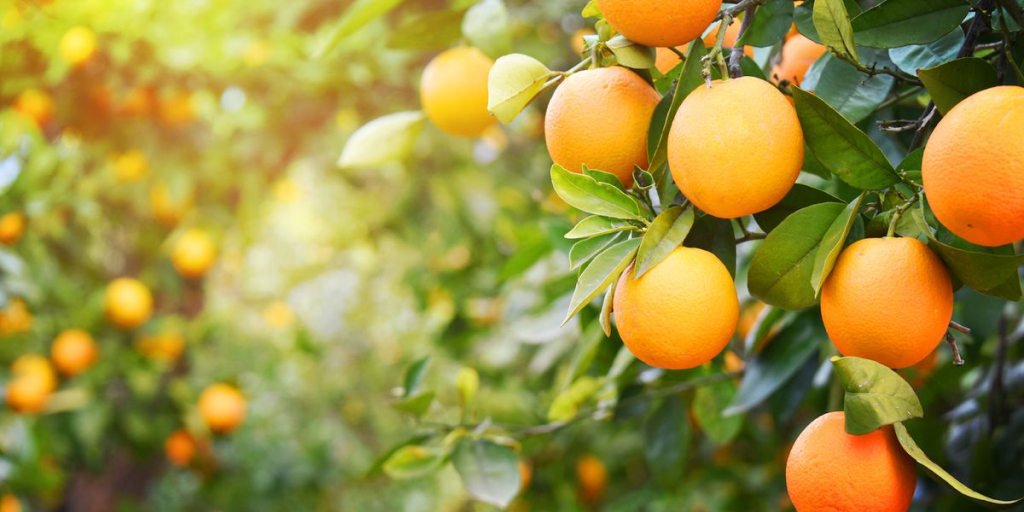
Oranges are one of the most widely consumed fruits globally, and they’re a good source of vitamin D. One medium-sized orange provides around 10% of the recommended daily vitamin D intake.
These citrus fruits are also rich in vitamin C, potassium, and fiber, making them an excellent addition to a healthy diet. Enjoy oranges as a snack, add them to salads, or squeeze the juice for a refreshing drink.
2. Papaya
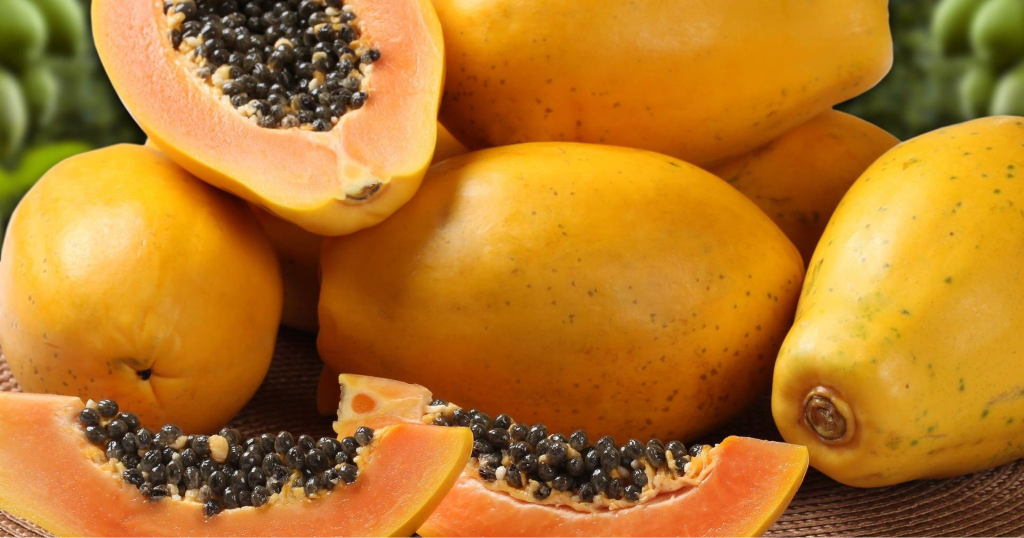
Papaya is a tropical fruit that’s not only delicious but also packed with nutrients, including vitamin D. One medium-sized papaya provides around 15% of the recommended daily vitamin D intake.
Papaya is also rich in vitamin C, potassium, and an enzyme called papain, which aids digestion. Enjoy papaya as a snack, add it to salads, or blend it into a smoothie.
3. Kiwi
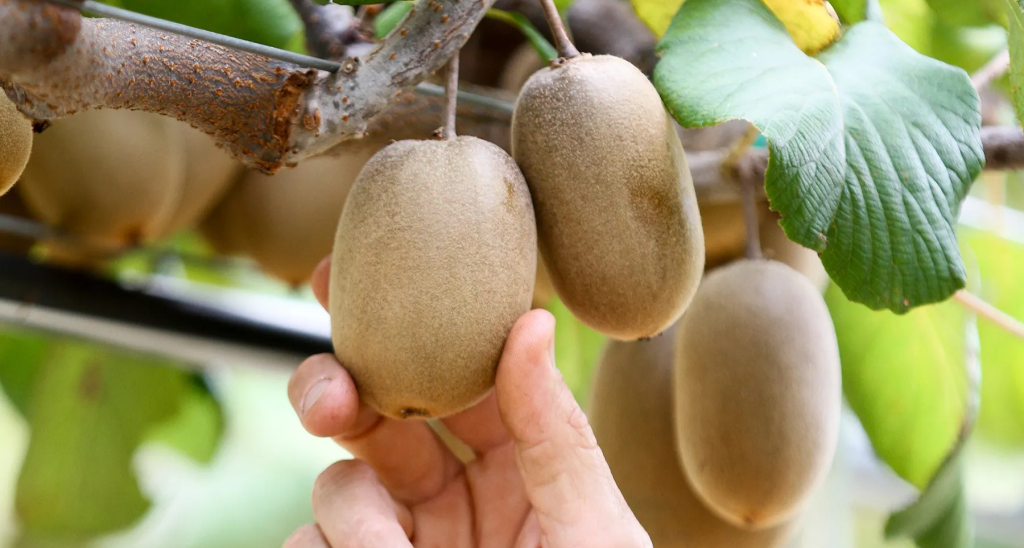
Kiwi is a small, furry fruit that’s big on nutrition. One medium-sized kiwi provides around 10% of the recommended daily vitamin D intake.
Kiwi is also rich in vitamin C, potassium, and fiber, making it an excellent addition to a healthy diet. You can eat kiwi as a snack, add it to salads, or blend it into a smoothie.
4. Mangoes

Mangoes are sweet and juicy fruits that are rich in vitamin D. One medium-sized mango provides around 10% of the recommended daily intake of vitamin D.
Mangoes are also rich in vitamin C, vitamin A, and fiber, making them an excellent addition to a healthy diet. Enjoy mangoes as a snack, add them to salads, or blend them into a smoothie.
5. Pineapple
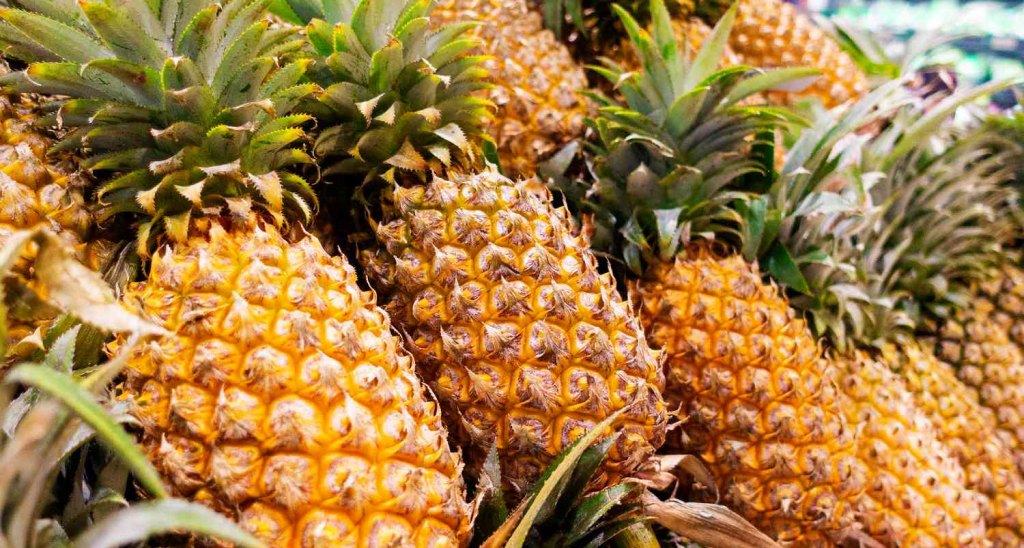
Pineapple is a tropical fruit that’s rich in vitamin D. One cup of pineapple chunks provides around 10% of the recommended daily intake of vitamin D.
Pineapple is also rich in vitamin C, manganese, and antioxidants, making it an excellent addition to a healthy diet. You can eat it plain, add it to salads, or blend it into a smoothie.
6. Figs
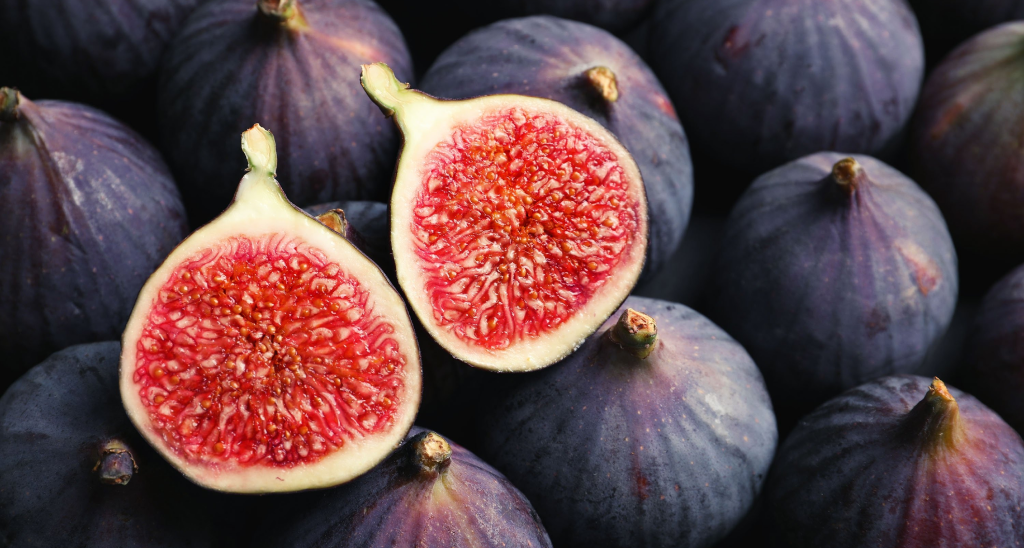
Figs are a sweet and nutritious fruit that’s rich in vitamin D. One small fig provides around 5% of the recommended daily intake of vitamin D.
Figs are also rich in fiber, potassium, and antioxidants, making them an excellent addition to a healthy diet. Enjoy figs as a snack, add them to salads, or blend them into a smoothie.
7. Apricots
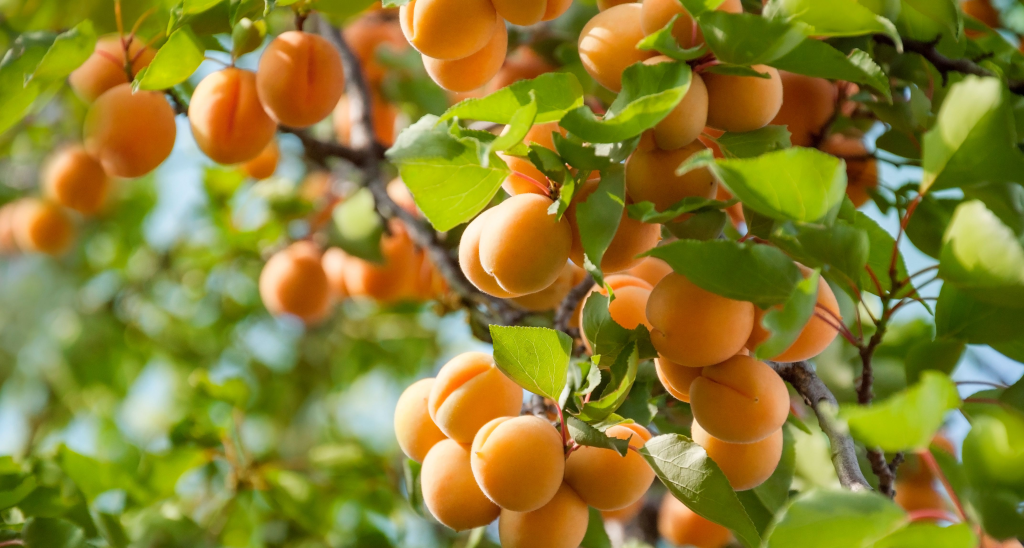
Apricots are sweet and juicy fruits rich in vitamin D. One medium-sized apricot provides around 5% of the recommended daily vitamin D intake.
Apricots are also rich in vitamin A, potassium, and fiber, making them an excellent addition to a healthy diet. Enjoy apricots as a snack, add them to salads, or blend them into a smoothie.
8. Peaches
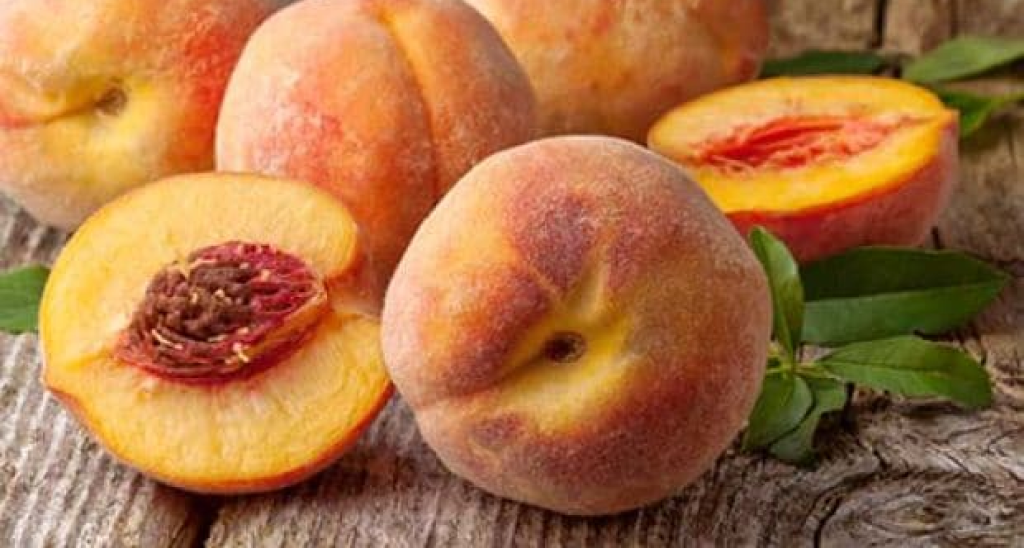
Peaches are delicious and juicy fruits that are rich in vitamin D. One medium-sized peach provides around 5% of the recommended daily intake of vitamin D. Peaches are also rich in vitamin C, potassium, and fiber, making them an excellent addition to a healthy diet.
9. Plums
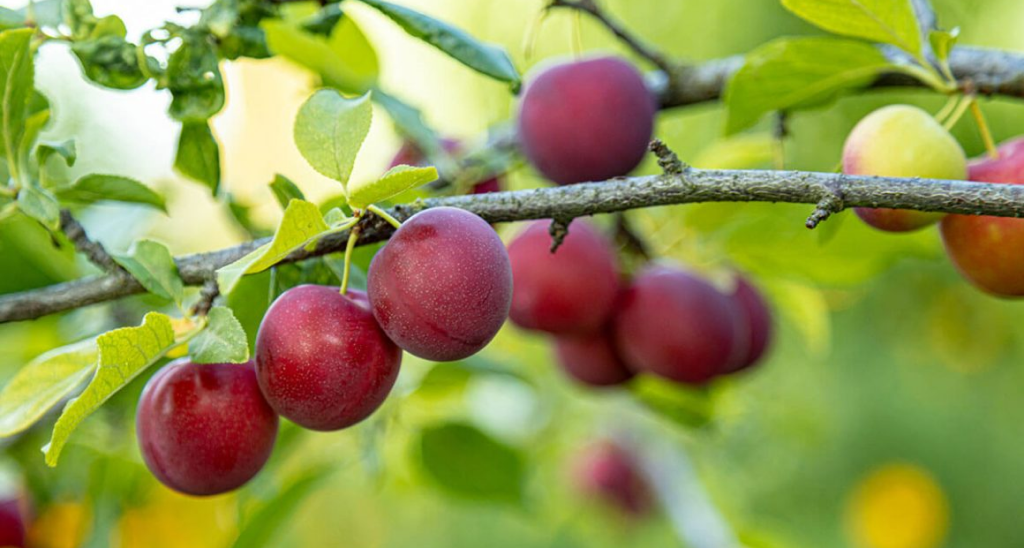
Plums are a sweet and nutritious fruit rich in vitamin D. One medium-sized plum provides around 5% of the recommended daily vitamin D intake.
Plums are also rich in vitamin C, potassium, and fiber, making them an excellent addition to a healthy diet. Add them to salads or blend them into a smoothie.
10. Cherries
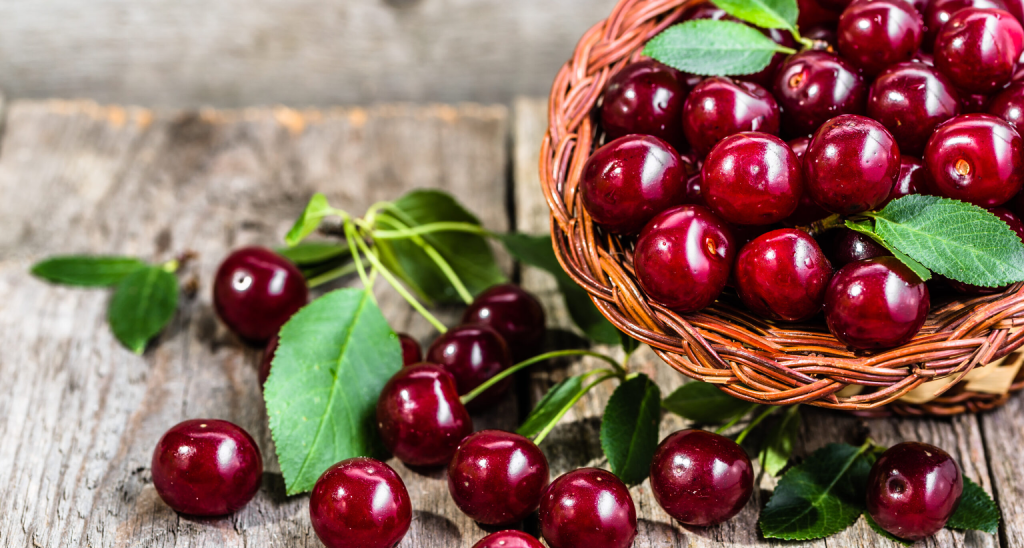
Cherries are a sweet and nutritious fruit rich in vitamin D. One cup of cherries provides around 5% of the recommended daily vitamin D intake.
Cherries are also rich in vitamin C, potassium, and antioxidants, making them an excellent addition to a healthy diet. You can top it on cakes, add them to salads, or blend them into a smoothie.
Including these vitamin D-rich fruits in your diet can help you meet your daily needs and support overall health. Always choose fresh, ripe fruits for the most nutritional benefits. If you cannot get enough vitamin D from your diet and sunlight, consider consulting with a healthcare professional about supplements.
Can You Take Vitamin D Fruits If You are Diabetic?
Yes, but with some consideration, as most Vitamin D fruits are sugary and high in GI. Diabetics can include vitamin D-rich fruits in their diet, but it is vital to consider the fruit’s glycemic index (GI) and carbohydrate content.
Fruits with a high GI can cause a rapid spike in blood sugar levels, which can be detrimental to diabetic individuals. Therefore, opting for fruits with a low to moderate GI is essential.
Some vitamin D-rich fruits that are suitable for diabetics include:
- Oranges (GI of 40)
- Papaya (GI of 55)
- Pineapple (GI of 59)
When consuming these fruits, diabetics should be mindful of their portion sizes and pair them with protein or healthy fats to regulate blood sugar levels. Additionally, it is crucial to consult with a healthcare professional or registered dietitian to develop a personalized diet plan that meets individual nutritional needs.
Conclusion
While most fruits aren’t a natural source of vitamin D, they’re still crucial for your overall well-being. Since vitamin D fruits are scarce, adding other vitamin D-rich foods to your diet is essential.
Fatty fish like salmon and dairy products like milk, yogurt, and eggs are excellent alternatives. Regularly consuming these vitamin D-rich foods can easily meet your nutritional needs and help you achieve a healthier lifestyle.
FAQs
Which Fruit is Rich in Vitamin D?
While there aren’t many fruits rich in vitamin D, some exotic options like chanterelle mushrooms, oranges, and kiwis contain small amounts. For a boost, you can also consider fortified fruits like vitamin D-enriched orange juice or UV-treated mushrooms.
What Foods Have High Vitamin D?
Fatty fish like salmon, mackerel, and sardines are excellent sources of vitamin D. You can also get it from dairy products, egg yolks, and fortified foods like cereals, orange juice, and milk. Some mushrooms, like shiitake and portobello, also contain vitamin D.
Is Apple Rich in Vitamin D?
No, apples are not a significant source of vitamin D. While they’re rich in antioxidants, fiber, and other essential nutrients, they don’t contain much vitamin D. If you’re looking to boost your vitamin D levels, consider other foods or supplements.
How to Raise Vitamin D Quickly?
Spend time outdoors, especially during peak sun hours, to get natural vitamin D from sunlight. Take vitamin D supplements, and consume vitamin D-rich foods like fatty fish, dairy products, and fortified foods. You can also consider UV lamps or sunlight therapy for a quick boost.
Is Mango Rich in Vitamin D?
No, mangoes are not a rich source of vitamin D. While they’re nutritious and delicious, they don’t contain significant amounts of this essential vitamin. If you want to boost your vitamin D levels, consider other foods or supplements.
Which Dry Fruit is Rich in Vitamin D?
Unfortunately, most dry fruits are not rich in vitamin D. However, some dried mushrooms like shiitake and portobello may contain small amounts. You can also consider fortified dry fruits or nuts for a vitamin D boost.
Which Fruit Juice is High in Vitamin D?
Organic orange juice is a good source of vitamin D. Some brands may also offer vitamin D-enriched apple or grapefruit juice. Always check the label to ensure the juice is fortified with vitamin D.
Is Beetroot Rich in Vitamin D?
No, beetroot is not a significant source of vitamin D. While it’s rich in antioxidants, fiber, and other essential nutrients, it doesn’t contain much vitamin D. If you’re looking to boost your vitamin D levels, consider other foods or supplements.
Leave a Reply